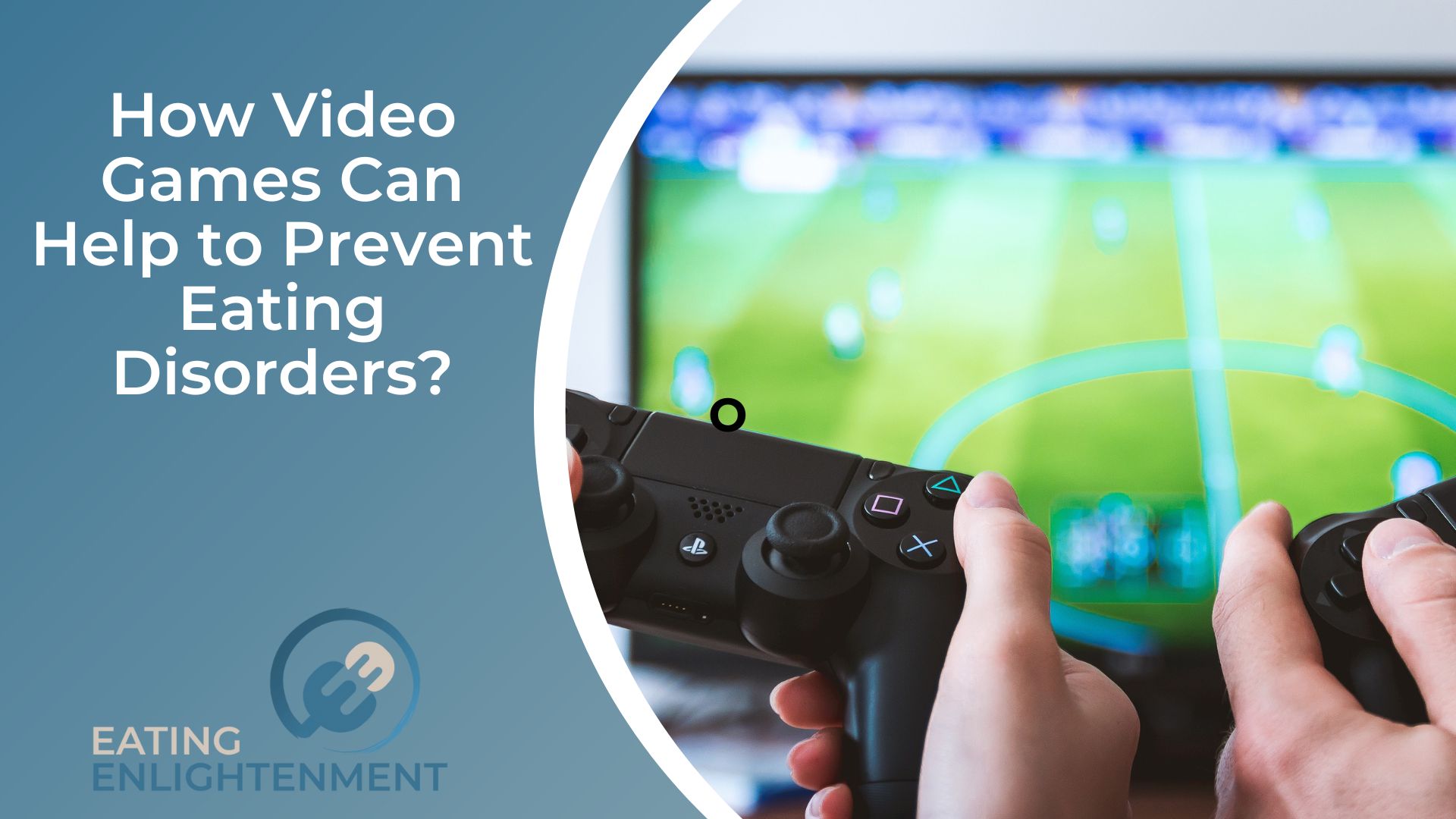Patients who suffer from eating disorders and other variations of disordered eating experience serious problems and comorbidities. The likelihood of achieving a full remission while receiving the current standard of care, however, is still slim.
Getting help can be challenging for some people for a variety of reasons, including dropping out of school, receiving an incorrect diagnosis, having trouble controlling their emotions and impulses, and possessing particular personality traits.
Since video games are enjoyable and simple to use, they may be used as a potential treatment for eating disorders’ mental components.

What Types of Games Are Used for Treating Disordered Eating?
Researchers found studies that used video games to help people with eating disorders and disordered eating. According to them, such ‘serious’ games help people to prevent the stress that may cause overeating or undernutrition.
The Problem of Disordered Eating
It can be quite tough to treat disordered eating for many reasons. As a result of people’s inability to recognize the harmful aspects of their eating habits or their embarrassment at needing treatment, the research discovered eating is under diagnosed. When you do seek assistance, your treatment plan may call for a multidisciplinary approach.
This implies that a team of professionals, including psychologists, physicians, dieticians, and others, can work together to treat you in the best way possible. To admit your weakness and insecurities to so many people is daunting.
This can result in high treatment dropout rates of up to 50% when combined with other factors like a refusal to give up control of eating behaviors.

People who suffer from these problems need to get help and treatment because eating disorders may lead to serious health issues.
You may know, Forbes has stated that playing video games is a popular way to make healthcare more interesting and less repetitive. It’s not surprising that the authors are interested in knowing if playing video games can help people with disordered eating stay in treatment.
However, they note the additional benefits of gamified therapy. Chat and play dates allow participants to learn new skills and behaviors in a safe environment. We have to make this decision many times every day, so it’s really helpful for practicing things like what food we choose. The writers also say that video games are good for learning because they have different levels that keep getting harder and help players get better.
Finally, they are interested in the potential of video games to assist participants in regulating food intake as well as impulse control and emotion regulation, important aspects of well-being.
The Results of Treating the Eating Disorders
Let’s jump right into what the studies found. The rest of the games were serious video games specifically designed for specific results. These results are:
- Emotional regulation: Due to the link between emotional state and eating behaviors, emotional regulation is closely related to disordered eating.
- Approach-avoidance training: Games that encourage participants to focus on the positive aspects of their bodies and dissuade them from ruminating on the negative ones are known as approach-avoidance training.
- Conditioning: The principles of conditioning were used in the creation of games, such as the classical conditioning principle of matching objects with positive responses.
- Inhibitory control: Several games have been created using the Go-No-Go principle of inhibitory control. The main goal of the prompts, which varied depending on the game, was to indicate a “Go” prompt for healthy food and a “No Go” prompt for high-calorie, unhealthy foods that participants might reach for when experiencing emotional difficulty. This was done to spread the message that eating junk food isn’t the best thing for your body or your problems.
This research discovered that there were noticeable decreases in symptoms of eating disorders that could be proven by statistics. Scientists also discovered that women liked the gamified treatment for disordered eating more than men did.
Conclusion
The studies examined in this review collectively show how video games can fill a variety of therapeutic gaps that might otherwise exist. Designing these games to avoid potential pitfalls, such as excessive stress brought on by the gambling games themselves or potential gaming addiction, is challenging.
Additional research will be needed to evaluate the games’ long-term advantages and investigate their potential to prevent disordered eating as well as treat it.


